50 years ago – on 28th November 1962 to be precise, a group of friends met in the hall of the primary school “Nord” and formed the “Verein für Geschichte und Heimatkunde Oberursel e.V.”, or in English: the local history society. And last Saturday many of those friends and other members of the society came together again to celebrate the 50th anniversary.
Only this time they were not in the hall of the primary school, but instead in the council chamber at the town hall, where they were welcomed by the current chairperson of the society, Marion Unger.
The first speech was held by Dr. Christoph Müllerleile, himself a member since 1965. He confirmed that the society has the support of the town’s administration, but also the support of its members, making it exemplary in the area. With a hint to the current budget talks he added “of all the voluntary services that may be cut, the society would be one of the last”.
On a technical matter, he also said that the society should not just concentrate on a text-based archive, but also collect audio and video material and make sure that this is conserved properly. People should make use of their digital cameras and mobile phones to record their memories now and donate them to the town’s archive, not just leave them on their computer where they could be lost.
He was followed by the town’s mayor, Hans-Georg Brum, himself a member sind 2003. “We are lucky, to have experienced so many periods of history here and be able to document them” he commented. He pointed out that many of the larger towns are interchangeable, with branches of the same shops in their centres and the same sort of things to do, whereas Oberursel was the opposite and was more of a “Heimat”.
For the future he would like to see younger people involved. “If I was an active member, I would be one of the youngest” he quipped.
After Bert Worbs, a local government committee member and historian had passed on the wishes of the district administrator Ulrich Krebs, it was the turn of Reinhard Michel, one of the founding members, to take the stand.
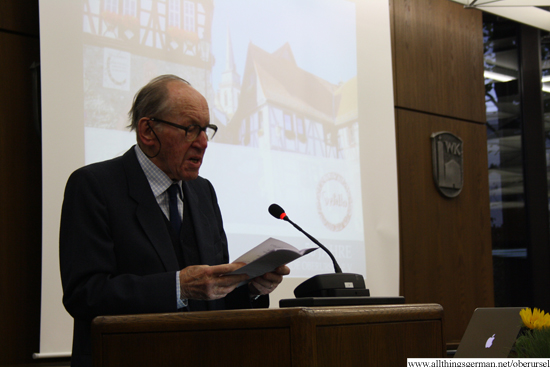
Reinhard Michel, Founder Member
Herr Michel, who turned 95 this year, told of how the forerunner to the society had actually been formed 10 years earlier, but when it was formalised in 1962 be persuaded all the members of the town’s executive and council to become members. Two years later they reached 250 members.
He remembered how the town’s archive and museum came into being, even to the point of how someone had once asked him why the town even needed such things, but noting that times had changed a lot since then.
His personal challenge to the current membership was to retrieve the Hohe-Mark-Pokal (cup) from the castle museum in Darmstadt, albeit by legal means and using sponsorship money. The ceremonial cup was used from the 17th Century until 1813, and with the Hohe-Mark now being at the northern end of Oberursel he would like to see it returned to the town – at least on long-term loan.
Following a muscial interlude by Dr. Fabian Vogt from Oberstedten, who performed a song from the “Ursella” musical, it was the turn of the guest speaker, Professor Dr. Barbara Dölemeyer to talk about the relevance of local history societies.
Professor Dölemeyer, who not only lectures at both the Max-Planck Institute in Frankfurt but also at the Justus-Liebig University in Gießen, is a member of number of historical commissions in the area. She has not only won the “Saalburg prize” but is also a holder of the Federal Cross of Merit (Bundesverdienstkreuz).
Her talk started with a look back at what was going on in the world and in the area in particular 50 years ago, but swiftly took us even further back to the beginning of the 19th Century, when land in Hessen was being divided up among the princes who had lost land to the French on the western side of the Rhine. What would have happened if Oberursel had been assigned to “Hessen-Homburg” instead of “Nassau-Usingen”? Would Oberursel have had a casino? Would the Urselbach have been dammed to provide water for the spa guests? And would the Marktplatz have been levelled out to play tennis on?
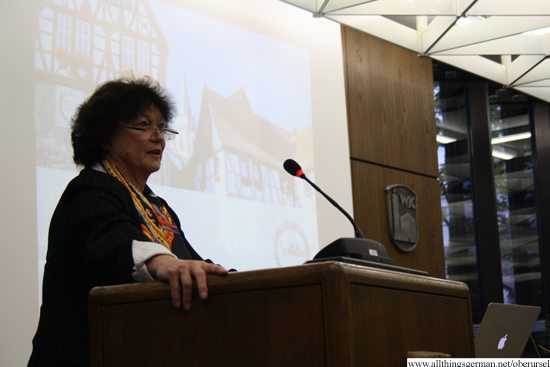
Professor Dr. Barbara Dölemeyer
The last question in particular is probably best left unanswered, but moving slightly further into the 19th Century Professor Dölemeyer explained how at the time clubs and society had to be approved – attempt by those in power to stop political gatherings. And so it was that a number of local history societies sprung up, as their dealings with the past were seen as harmless, with a similar situation in the latter half of the century when many choirs were formed.
Following her talk there was a slide show of photos showing long-time members who have sinced passed away, before it was time to honour those members who have been in the society for 25, 40 and 50 years, with the last group also being the largest!
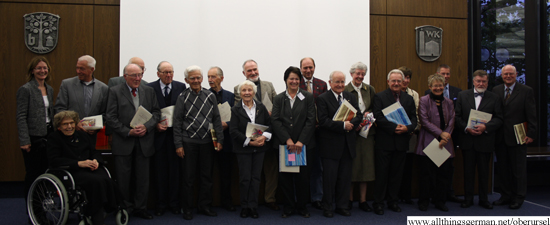
The photo shows the following members who were present on the day:
25 years
Brigitte Füller
Maria Nüchter
Angelika Rieber
Rainer Schulz-Isenbeck
40 years
Wera Calmano
Herbert Federbusch
Albert Jung
Harro Junk
Thomas Pietsch
Walter Scheich
50 years
Josef Friedrich
Gerhard Kempf
Reiner-Michael Maas
Gisela Michel
Reinhard Michel
Richard Mohr
Helene Netz
Otto Nüchter
Karlheinz Pfaff
Ludwig Zimmermann
Closing the proceedings, Marion Unger (on the far left in the photo) claimed “my heart beats for Oberursel” before opening the champagne buffet.
(Click to enlarge)
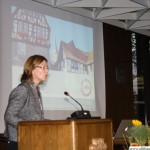
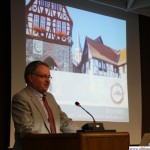
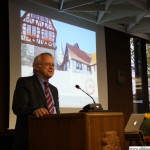
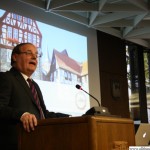

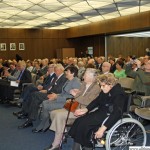
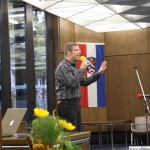
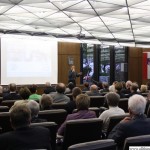
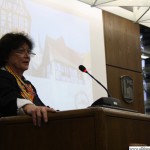
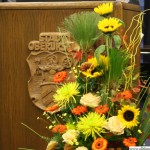
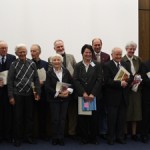





Speak Your Mind